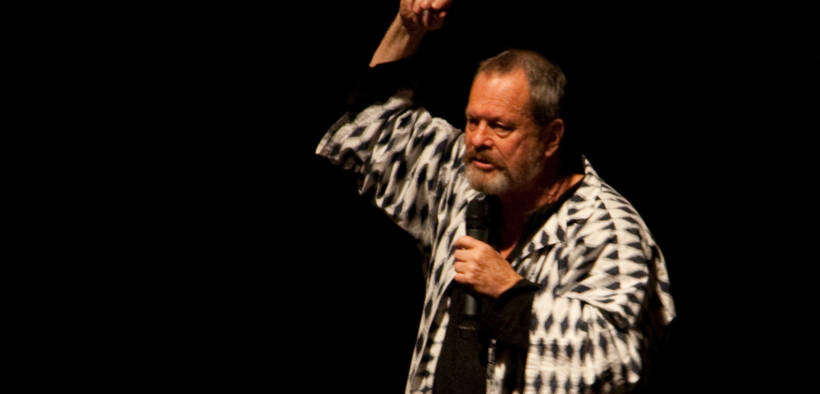Monty Python’s Terry Gilliam is Tired of White Men Being Blamed for Everything

“I’m talking about being a man accused of all the wrong in the world because I’m white-skinned.”
Few public figures, particularly in the liberal entertainment industry, have spoken out against the ubiquitous social justice movement that includes #MeToo – but a venerated director, writer and actor from England’s “Monty Python” isn’t holding back on calling out a perceived bias he sees in the movement.
While promoting his new film, The Man Who Killed Don Quixote, the 79-year-old Terry Gilliam discussed his feelings on the current culture war. In particular, Gilliam felt that straight white men have become the default target for other people’s frustrations, and that it’s not always justified.
“We’re living in a time where there’s always somebody responsible for your failures, and I don’t like this,” he said. “I want people to take responsibility and not just constantly point a finger at somebody else, saying, ‘You’ve ruined my life.’”
As a veteran of show business, Gilliam pointedly addressed the #MeToo movement, which has permeated popular culture – exposing sexual assault from (mostly) men in power, which is prevalent in the entertainment industry.
“#MeToo is a witch hunt,” Gilliam remarked. “I really feel there were a lot of people, decent people, or mildly irritating people, who were getting hammered. That’s wrong. I don’t like mob mentality. These were ambitious adults.”
He quickly assured that he was not defending everyone such as disgraced studio mogul Harvey Weinstein, but implied that some actors do consciously attempt to boost their career with the possibility of a “casting couch” scenario.
“There are many victims in Harvey’s life,” he added. “I feel sympathy for them, but then, Hollywood is full of very ambitious people who are adults and they make choices. We all make choices, and I could tell you who did make the choice and who didn’t.”
“I can tell you about a very well-known actress coming up to me and saying, ‘What do I have to do to get in your film, Terry?’ I don’t understand why people behave as if this hasn’t been going on as long as there’ve been powerful people,” Gilliam said. “I understand that men have had more power longer, but I’m tired, as a white male, of being blamed for everything that is wrong with the world.”
He then offered a possible solution for that problem: to avoid the labels of black or white entirely, he could be called a “melanin-light male” instead.
“I’m talking about being a man accused of all the wrong in the world because I’m white-skinned,” Gilliam explained. “So I better not be a man. I better not be white. OK, since I don’t find men sexually attractive, I’ve got to be a lesbian. What else can I be? I like girls.”
Leave it to a comedian like Gilliam to thumb his nose at political correctness, but does he have a point? Have we swung the pendulum too far in the name of equality and antagonized (straight, white) men too much?
“I can’t stand the simplistic, tribalistic behavior that we’re going through at the moment,” Gilliam pointed out.
The general argument to justify overt criticism against straight, white, and/or men today is that they were historically privileged and never persecuted (legally, socially, and yes, fatally) for being a member of any of those groups.
However, for the sake of counterargument: if we reciprocate oppressive behavior towards our (oppressors), are we any better than they are? Can we shine a light on the historic injustice certain groups have faced without it being interpreted as tribalistic antagonism towards another group, as Gilliam asserts?
Perhaps one mode to follow when treading this nuanced subject is from a venerable civil rights advocate himself, Dr. Martin Luther King, Jr., who emphasized that the fight for equality and tolerance should be fought with those very virtues: “Hate cannot drive out hate. Only love can do that.”
Half a century after King has passed away, are we still abiding by his motto? Surely many of us do and believe we do, but apparently some observers may disagree.



















